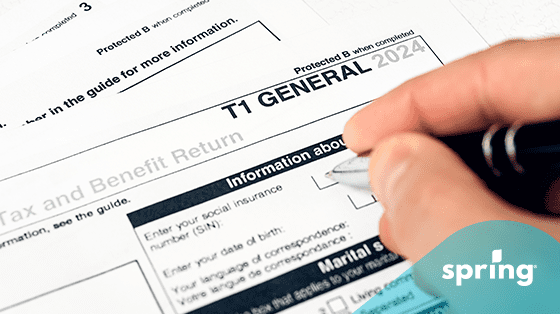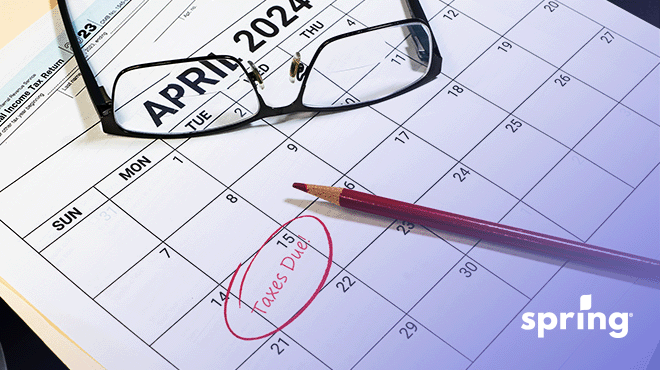Errors do happen on personal income tax assessments, and a little bit of investigation may prevent you from needlessly paying taxes you don’t actually owe.
Once you’ve received your Notice of Assessment (within weeks if filing digitally, or 8 weeks if filing by mail), you should review it thoroughly by comparing it to your income tax return. You may find that the CRA disallowed certain deductions, which then effectively increases your amount of tax owed.
For example, if you have validly claimed medical expenses on your income tax return and, for some reason, the CRA altered the amount or completely disallowed it, you’re entitled to find out why.
That said, sometimes clerical errors can happen, so it could just be an honest mistake. Or, maybe you forgot to submit a document with your return that would clear it all up. Regardless of why, the first step is to…
Step 1: Call the CRA
To call the CRA dial, 1-800-959-8281 within Canada and the U.S. You will need to determine if what you’re objecting to isn’t just a typo or other kind of mistake made by the CRA. Sometimes, all that is required is an informal inquiry that starts a review process. This is the first of the objection stages.
Don’t be afraid to do this! The CRA wants to work with Canadians and encourages taxpayers to communicate with them. Simply accepting and paying what’s on your assessment when you have reason to believe it’s the wrong amount isn’t the way to go.
The informal inquiry may actually end up resolving the issue at hand. That said, if it does not, and you’re still unsatisfied after speaking with them, then you have the right to formally object via the…
Step 2: Notice of Objection Form (CRA Form T400A)
Though this form is not mandatory, it’s the easiest way to file an objection and create a formal dispute. It will help as an important guide so you can verify you have all the required information (eg: documentation) needed. If you’re uncomfortable doing this on your own or need assistance, you can also hire a certified accountant to help you put it together.
You can get the CRA Form T400A right here at the CRA’s official website.
This is the first of the next steps that you take if you still disagree with the CRA after you speak with them. It’s also important to note that this isn’t a short process. You could be waiting one year or longer for a decision.
Deadline to File an Objection
The time limit for filing a Notice of Objection with the Canada Revenue Agency upon receiving your Notice of Assessment (or Reassessment) is 90 days from the mailing date, according to the Income Tax Act, which is different from the Excise Tax Act. It’s imperative that you apply within these 90 days, the statutory deadline, as the CRA doesn’t usually grant extension requests, unless due to certain circumstances (eg: extended hospitalization). This can be done through regular mail or registered mail.
How to File a Notice of Objection
You can submit the Notice of Objection letter both by mail or online through the CRA’s “My Account” portal with the “Change My Return” service or a T400A form.
An important note about the online submission option: You can only use this method if you’ve signed up for an online account. The CRA has to send you a special code to be able to log into your account (to protect your privacy) once you’ve created it, so keep this in mind in your filing deadline should you wish to submit the form online.
You can file it, but it’s highly advisable to hire a tax professional to do it for you. Why? The more complicated your tax issue is, the more you should probably hire someone to help you handle it. Tax laws are complicated and a critical error at this point could throw your legitimate case down the drain. This would mean that the CRA rejects your Notice of Objection.
How Long Does It Take to Resolve a Notice of Objection?
Resolution, whether in your favour, not in your favour or something in between (Eg: a settlement), can take several months. That said, communication doesn’t shut down between you and the CRA at this time. Your file will be assigned to an appeals officer and you can check in regularly and ask for status updates. They may also call you if they need additional information or need more documentation.

Step 3: Appeal to the Tax Court of Canada
If your Notice of Objection is denied by the CRA, you have one more recourse—the Tax Court of Canada. The “TCC” has jurisdiction over all tax matters in Canada and hears cases in over 50 cities across the country. They’re a federal court completely independent of the CRA and have approximately 25 independent judges that operate by their own procedures, which will allow you to start the appeal process. This can be done for personal taxes or by large corporations.
If you decide to take your objection to the courts, tax lawyers highly recommend that you seek representation, though you are also permitted by law to represent yourself. It’s also important to keep in mind that you have 90 days after the Minister’s decision in order to file an appeal and provide the relevant facts.
There are two kinds of tax court procedures: informal and general
The informal procedure is quick, free, and simple, but you have to meet certain requirements to be eligible. It’s more relaxed, and the goal is to find a resolution as quickly as possible.
An appeal qualifies for the informal procedure if the loss amount isn’t more than $50,000, if the disputed amount of your federal tax and penalties isn’t more than $25,000 (per assessment) or if the interest on tax & penalties is the only thing up for dispute.
A judge hears the appeal within 180 days of submission, and once the appeal court hearing has occurred, a final decision is made within 90 days.
If you do not meet these criteria, your appeal will be considered a general procedure. Unlike the informal procedure, the general procedure has a filing fee that ranges between $250 & $550, and the process usually takes over a taxation year.
Spring Financial is here to help you make the most of your tax refund. With simple tips, we can help get you on the path to a better financial standing.
How To Adapt Your Tax Return If You Make The Mistake
In some cases, mistakes on your tax return may have been made by you. If this is the case, then you can make those changes yourself without having to contest the CRA. In this case, you would re-file your return. Your NOA would then be reassessed, and then you would be provided with a new refund amount or a new tax total.
You can refile your return with a tax professional, or you can refile directly on your CRA account or through CRA business account services. All you do is open the tab and add any new information that you need to file. This way, you don’t have to refile your entire return; you can just make the adjustments that you need to make.
Once your refile has been looked over and approved, you’ll then receive your new notice of assessment with your updated amounts. While it’s best to do this refile as soon as you notice, you can actually refile up to 10 years later.
GST/HST Post Assessment Review
A GST/HST post-assessment review is different from an audit. With this type of review, the Canada Revenue Agency (CRA) goes over the original assessment and compares return lines, matching data, income tax information, and takes note of any discrepancies. However, if you don’t agree with the decision, you can contest it with the CRA appeals officer. You can also choose to have an authorized representative do so on your behalf. This may result in a new reassessment.
The idea behind a GST/HST post-assessment review is to verify that you acted with bona fide intention for the tax year. This can be done for both personal taxes and business taxes, but each type will look for different things. With businesses, it looks for total taxable capital employed, which is the amount that a business’s capital exceeds it’s investment allowance. They’ll use all relevant information for related corporations to help with.
Since the audit division deals with these, unpaid amounts could also result in collection action for taxes payable, which are part of the national revenue. That said, by keeping in contact with the CRA you can negotiate an extension of time. You can also discuss relief sought from tax amounts, which you may qualify for under circumstances permitted or other circumstances. Any supporting documentation can be sent using first-class mail.
Final Thoughts
Whether mistakes on your income tax return are the fault of the CRA or your own, they do happen. In a case like this, the best thing that you can do is to file a notice of objection. If the mistake is your own, though, you are able to just refile your income tax return. If you’re ever unsure, the best thing that you can do is speak to a tax professional. They can walk you through the proper protocols and what your next steps should be.








